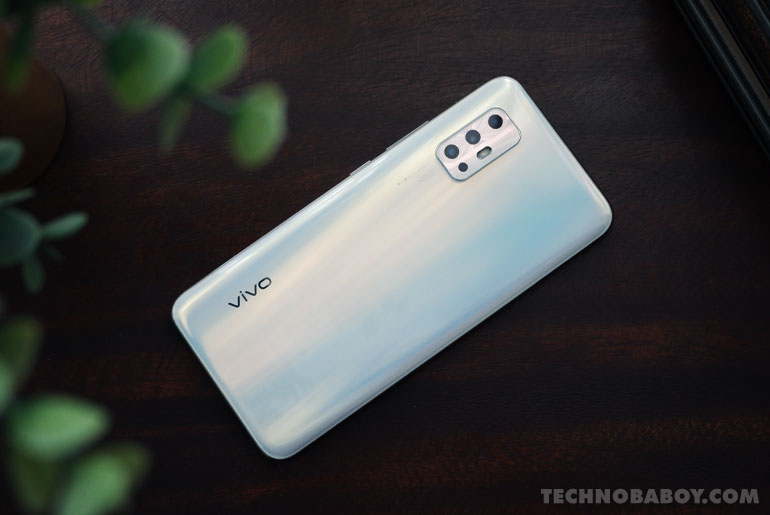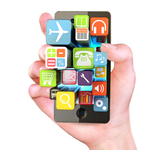iPhone Jailbreaking - Everything you need to know - Android
For most iPhone users, iOS is already a great operating system as it is. It’s clean, elegant, and offers a fair amount of functionality, but it does have its limitations. If you’ve ever grown tired of the restrictions of iOS in terms of customization or downloadable apps, you’ve probably heard about and considered jailbreaking your […] More
This article, iPhone Jailbreaking: Everything you need to know, was originally published at NoypiGeeks | Philippines Technology News, Reviews and How to's.
For most iPhone users, iOS is already a great operating system as it is. It’s clean, elegant, and offers a fair amount of functionality, but it does have its limitations.
If you’ve ever grown tired of the restrictions of iOS in terms of customization or downloadable apps, you’ve probably heard about and considered jailbreaking your iPhone. Maybe you’ve even attempted to jailbreak your iPhone already, but there’s always that lingering feeling that what you’re doing could potentially be dangerous.
While there is a considerably big community that jailbreak their phones, there’s still a lot of confusion and uncertainty around the concept, making jailbreaking a foreign concept for the average user. To help you learn more about iPhone jailbreaking, we’ll talk about what jailbreaking really is, what’s the general process to jailbreak a phone, and whether it’s completely safe and legal to do so.
What is iPhone jailbreaking?

Unlike other operating systems, iOS offers very limited capacity for users to customize and personalize their phone’s look and interface, aside from the basic wallpaper change. There are also several limitations in iOS in terms of available apps because you can only install those that can be found on the App Store.
To bypass these limitations, some users jailbreak their phones. Jailbreaking is the act of getting root access to your phone’s operating system, breaking free from the “jail” of software restrictions that Apple has imposed on their products.
It’s similar to “rooting” in the Android sense. With a jailbroken iPhone, you can install different apps, extensions, and other software that are not authorized on the App Store.
For some, jailbreaking sounds like a great way to maximize their phone’s potential, but it can also seem a bit daunting and even illegal to tamper with your phone in such a manner.
READ: How to jailbreak an iPhone or iPad using a rooted Android device
What is NOT jailbreaking?

Jailbreaking is different from unlocking your iPhone. If you bought your iPhone on a plan from a carrier, like Smart and Globe, for example, it will be “locked” to their network and you will need to unlock your phone if you want to use a SIM from a different network. However, unlocking your iPhone does not remove the software limitations set by Apple on your device.
How do you jailbreak an iPhone?
In earlier years, jailbreaking an iPhone was pretty complex and required high technical effort. Nowadays, aside from a few precautionary measures, jailbreaking an iPhone is comparatively easier and more accessible.
You need to download a jailbreaking software that is suitable for the iOS version running on your device. There are several types of software available for download, like Pangu and Chimera. Depending on the software, you may or may not need PC or Mac support to successfully jailbreak your phone.
While it is accessible, it is still recommended that you seek expert and professional guidance if you ever plan to jailbreak your phone. If not careful, unsuccessful jailbreaks may lead to losing access to your data or getting locked out of your device completely.
Related stories
- Android features Apple copied for iOS 14
- List of compatible devices for iOS 14

What do you get from jailbreaking your iPhone?
Customize your device. Customizing the interface is severely limited in iOS, so some users turn to jailbreaking their phones to bypass these restrictions and personalize their devices with different themes, icons, and other software extensions according to their needs and preferences.
Extend your iPhone features. With a jailbroken iPhone, you can now install apps from other sources that are not available on the App Store. Cydia is one of the largest and most popular jailbreak app stores where you can download apps and software that can greatly improve the functionality of your device.
(NOT) Unlock your iPhone from a carrier. While jailbreaking is different from unlocking your iPhone, jailbreaking also allows you to use a different carrier from your locked carrier by bypassing it altogether — at least a few years ago. But times has changed. Nowadays, you can no longer unlock your iPhone by jailbreaking.
Is it illegal to jailbreak your phone?
Despite its scary-sounding name, it is perfectly legal to jailbreak your iPhone, when it was made into an exemption from the Digital Millennium Copyright Act in 2010. However, it is only legal to jailbreak your phone if you’re going to get legally acquired apps like open-source packages, not pirated software.
But while it is legal, jailbreaking is frowned upon and is not encouraged by Apple. Jailbreaking and other unauthorized modifications are considered a breach of the iOS End User License Agreement, and doing so will thus result in the loss of your warranty.

Is iPhone jailbreaking safe?
iOS has a lot of security measures in place to keep your device working optimally and safe from hackers and malware. Breaking free from these measures through jailbreaking compromises your phone and makes it more vulnerable to potential attackers. It also brings a lot of risks like stability issues, shortened battery life, and app crashes, which may drastically impact your mobile experience.
The jailbreaking process itself may lead to compromising your phone when not done properly. Also, remember that jailbreaking your iPhone means losing your warranty, so you’re left on your own to fix your phone if anything happens after jailbreaking.
Verdict
Jailbreaking opens up your iPhone to many new possibilities that cannot be possible under iOS’ strict software regulations. This means higher functionality and a more personalized OS based on your needs and preferences. However, jailbreaking voids your warranty and brings a host of potential problems, like higher risk for malware and a potential dip on your device’s performance in some cases.
If you are not an expert, it is generally unwise to jailbreak your iPhone because of the big risk involved in the process. If you do decide to jailbreak your phone, it is recommended that you seek out professional help to prevent any unwanted consequences, like loss of your data. Make sure that you are ready to face the potential risks to your device, and always jailbreak with caution.
What do you think about jailbreaking? Have you ever tried jailbreaking an iPhone before? Share with us your thoughts and experiences down below.
This article, iPhone Jailbreaking: Everything you need to know, was originally published at NoypiGeeks | Philippines Technology News, Reviews and How to's.
09/07/2020 08:15 AM
Huawei MateBook D14 - Staying productive in the ‘new normal’
09/07/2020 06:39 AM
realme X3 SuperZoom launches in the Philippines; Price, specs here
09/07/2020 04:43 AM
LG K31 key specs revealed
09/07/2020 10:41 AM
Vivo announces online rave with KatDJ this Friday
09/07/2020 09:30 AM
realme X3 SuperZoom launches in the Philippines, priced
09/07/2020 04:38 AM
Miss partying Vivo’s got your back with an online party night on July 10
09/07/2020 08:20 AM
MSI invites you to watch Ubisoft Forward on July 13
09/07/2020 10:15 AM
Cybercriminals send ransomware to users of out-of-date web browser in APAC
09/07/2020 02:59 AM
- HEALTH
- Comics
- Libraries & Demo
- Sports Games
- Racing
- Photography
- Transportation
- Media & Video
- Sports
- Health & Fitness
- Weather
- Medical
- Cards & Casino
- Arcade & Action
- Personalization
- Social
- Communication
- Productivity
- Casual
- Shopping
- Tools
- Brain & Puzzle
- Business
- News & Magazines
- Finance
- Lifestyle
- Music & Audio
- Entertainment
- Travel & Local
- Books & Reference
- Education






